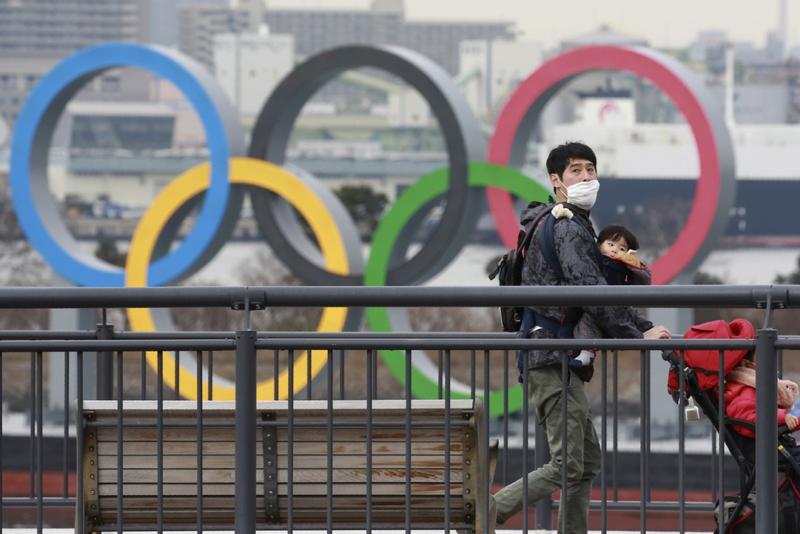 A man walks on the Odaiba waterfront in Tokyo on Tuesday as Olympic rings are seen in the background. (KOJI SASAHARA / AP)
A man walks on the Odaiba waterfront in Tokyo on Tuesday as Olympic rings are seen in the background. (KOJI SASAHARA / AP)
TOKYO - Japanese lawmakers and the public grilled the government over plans to recruit 10,000 medical personnel for the Summer Olympics as hospitals in Japan come under mounting pressure from a rising number of COVID-19 patients.
Japan's Olympic Minister Seiko Hashimoto said in a parliamentary session on Tuesday the government is committed to a plan to secure thousands of medical staff for the Tokyo Olympics and Paralympics.
ALSO READ: No fireworks, little fanfare: Tokyo organizers mark six months to go
"We are trying to secure necessary medical staff of around 10,000, on the premise of asking doctors and nurses that each of them work about five days during the Games period," she said.
Hashimoto's remarks provoked an immediate storm of protest from opposition politicians, as well as the public, because the country's medical community had voiced alarm for months, fearful that hospitals could be overwhelmed anytime before the Olympics open on July 23.
Kiyomi Tsujimoto, a lawmaker of Japan's Constitutional Democratic Party, questioned Hashimoto's decision and pointed out that hundreds of thousands of Japanese with COVID-19 were stuck at home because of medical staff shortages.
"Many infected people cannot be hospitalized. People have died alone at home without hospital care and others have died on their way to hospital," Tsujimoto said.
"Given the current situation of our medical system, isn't it impossible to hold the Tokyo Olympics in its complete form?"
Japanese Prime Minister Yoshihide Suga avoided a direct answer but reiterated his longtime conventional response to the issue.
"We would like to prepare for the Olympics while taking measures against coronavirus in a perfect, safe way," Suga said.
However, Suga also apologized for the government's failure to provide sufficient medical care under the strain of the pandemic.
According to Japan's police department, nearly 200 people with coronavirus had died outside Japan's healthcare system since March last year.
READ MORE: Japan PM apologizes after lawmakers' night club outings
Japan's Health Ministry's data showed more than 35,000 COVID-19 carriers in the country were caring for themselves at home due to hospital bed shortages.


